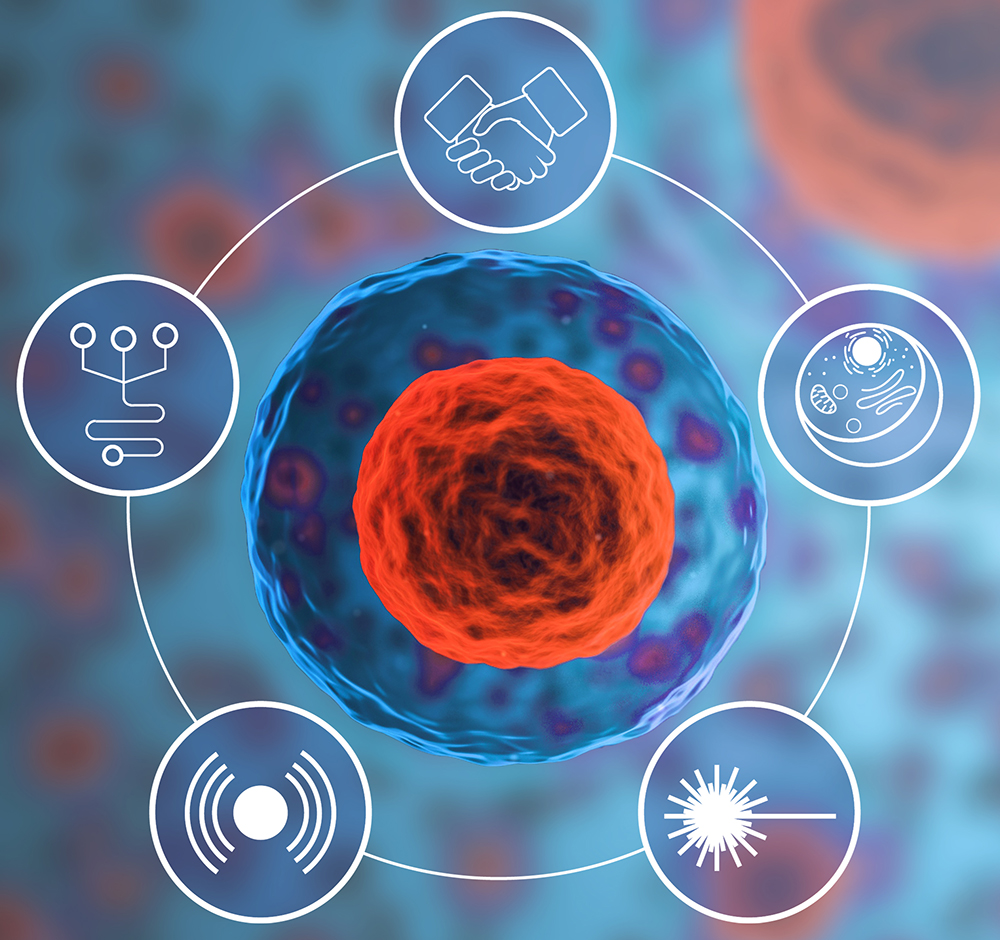Advanced Single-Cell Tools - Making Isolation, Positioning and Analysis of Biological Cells More Efficient

Analytical systems for single living cells and cell assemblies are essential for modern medicine and pharmacy to investigate degenerative cell changes and specifically tailored drug combinations for personalized medicine. The Fraunhofer Institutes IMM, ILT, IMS and EMB cover the entire process chain for manufacturing and evaluating such systems, which can be used to isolate, position and analyze biological cells quickly and very precisely.
Bundled R&D services for SMEs
The network "SiCellNet" is a virtual research campus of these four Fraunhofer institutes. It forms a central point of contact for SMEs active in this product segment. The cluster provides suitable process steps with targeted development capacities and infrastructures for these SMEs and works, for example, on feasibility studies for single-cell printing and validation projects for chip-based analysis.
Technologies and fields of application
Fraunhofer IMM specializes in microtechnology and microsystems, with a particular focus on microfluidic components and systems. These technologies are successfully used for automated handling and delivery of single cells, such as in the CTCelect system for isolating rare cells from a blood sample.
Fraunhofer IMM has intensive know-how in single cell dispensing. Current work addresses, for example, the development of a micro-droplet dispensing silicon chip for the rapid and precise placement of droplet-encapsulated biological cells. Applications of this technology range from filling microtiter plates for single cell diagnostics for personalized medicine to tissue engineering and 3D printing of organs.
R&D offer for SMEs
The infrastructure for research and development services at Fraunhofer IMM includes:
- The entire technology chain for microfluidic system development (including prototyping of disposable microfluidic plastic cartridges, automation, demonstrator construction).
- Clean room facilities for silicon-based microstructuring of microfluidic MEMS chips
- Biological laboratories with cell handling technologies
 Fraunhofer Institute for Microengineering and Microsystems IMM
Fraunhofer Institute for Microengineering and Microsystems IMM